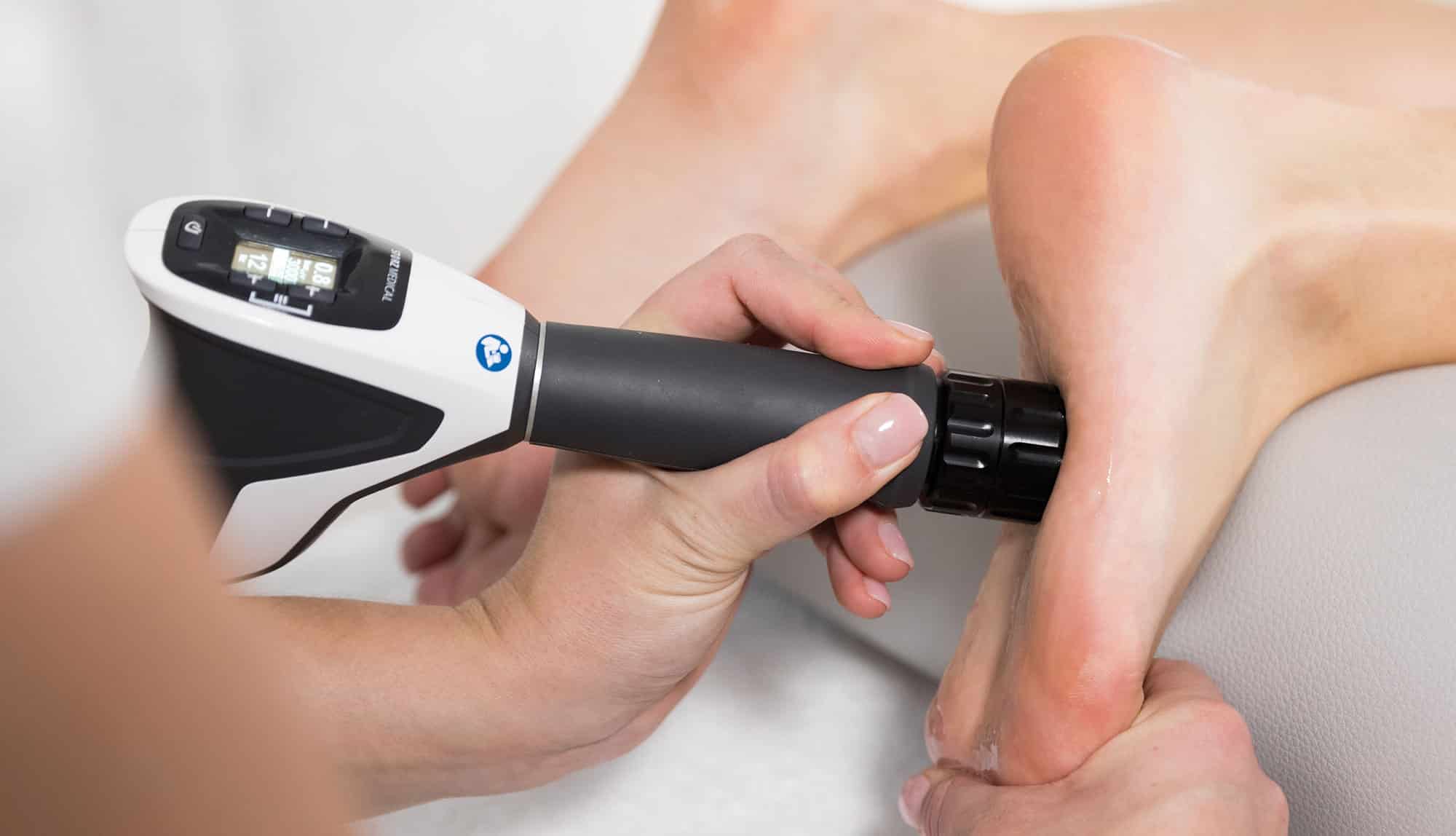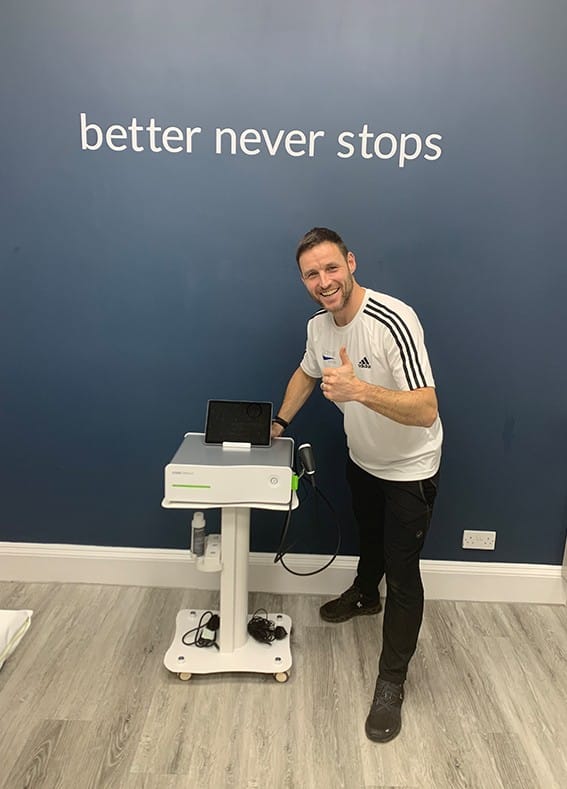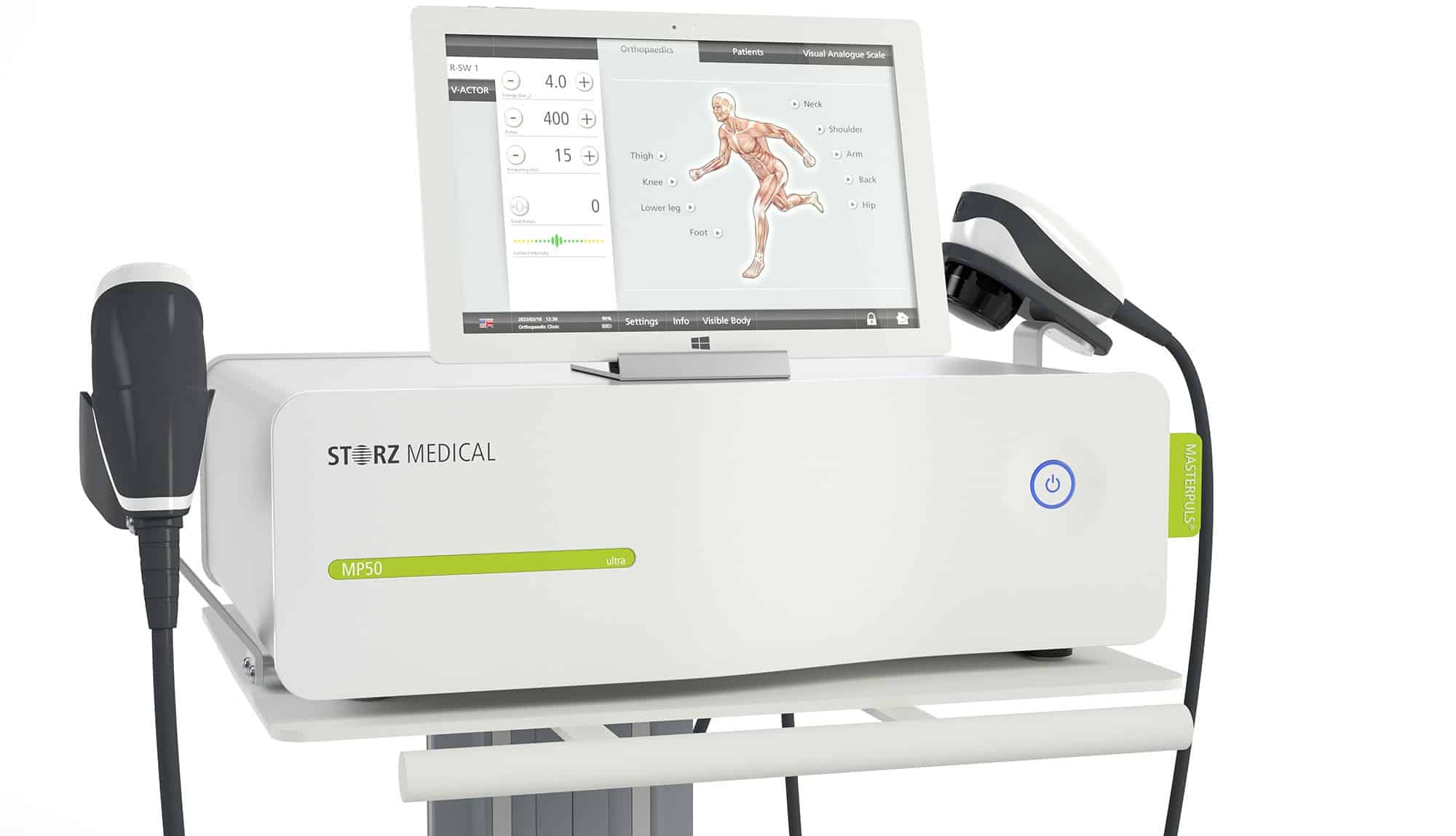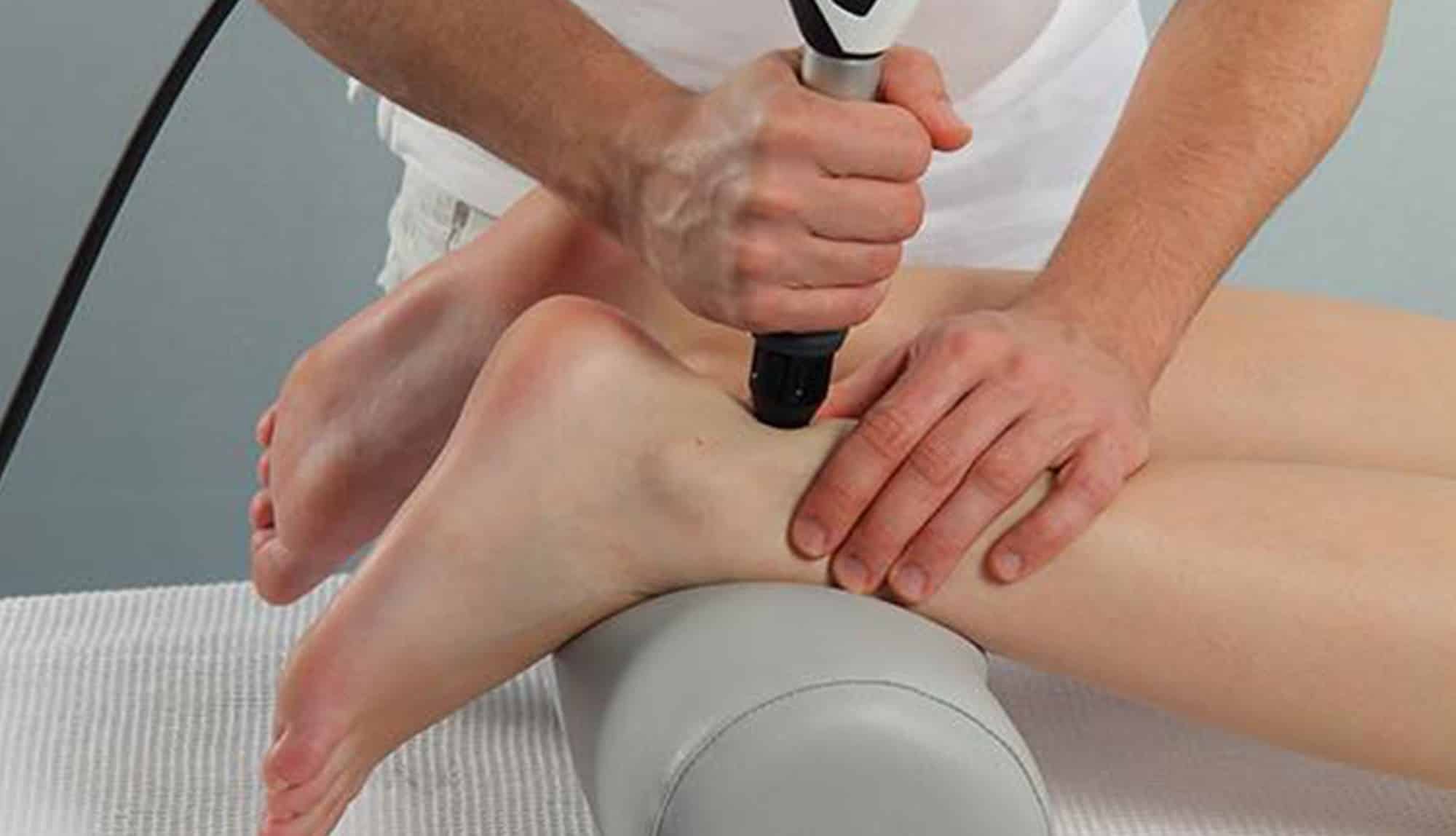Shockwave Therapy
What is Shockwave Therapy and Who is it for?
Do you ever suffer with a chronic (long term) tendon problem? Have you tried a long rehab plan, stuck to it like glue and only partially recovered? Pain relief and rest not resolved the problem? Do you want to get rid of that annoying ache and not have to go through surgery or receive an injection? Are you fed up reaching for pain killers before going on court, before a round of golf or before going out a run? Are you hesitant to enjoy your sport or activity on consecutive days in case it gets too painful?
Well, then we have a treatment available which could be perfect for you. It’s called Shockwave Therapy. We are delighted to be able to introduce Shockwave Therapy to our clinics in Largs and Clarkston, to help you get back to enjoying your exercise and life again.
But what is shockwave and who can benefit?
What is shockwave treatment?
Shockwave is a treatment in which high-frequency pulses (energy) pass through soft tissue or bone to encourage engagement of the body’s natural recovery and healing process whilst offering an acute anaesthetic affect. Shockwave can be used to treat conditions with inflammation, or as a method to support nerve and tissue repair and regeneration.
It is a non-invasive, safe method of treatment which can be used to successfully manage and treat a wide range of conditions. It is a commonly used alternative to surgery, providing impressive results throughout many patients. In short it is the non surgical solution, which is safe and clinically effective for a number of specific conditions.

The fast, effective treatment that avoids injections and surgery
In the UK, official clinical guidance for treatments is issued by NICE (National Institute for Health & Clinical Excellence). Their remit is to make recommendations on the best treatments that have been evidenced and backed by substantial research. For Shockwave there are a number conditions with NICE guidelines and each year, more conditions are treated leading to further evidence of successful outcomes.
Shockwave now has a huge amount of clinical evidence and research to support treatment for the following conditions. The key is effective selection of the right patients. So first thing we need to do is assess you properly to make sure it is suitable for you.
What conditions are suitable for shockwave therapy?
Shockwave is not suitable for all injuries. But it is perfect for the following conditions:
- Elbow Pain (Golfer and tennis elbow)
- Shoulder Pain (Calcifying tendinitis of the shoulder, subacrominal pain syndrome, phase 1 frozen shoulder)
- Achilles Pain (Achilles tendinopathy)
- Heel Pain (Plantar fasciopathy/ plantar fasciitis)
- Back Pain (chronic)
- Chronic Neck Pain (Myofascial pain syndromes)
- Hand Pain (Dupuytrens disease, De Quervain disease, trigger finger and Carpal tunnel syndrome)
- Hip Pain (Greater Trochanteric Pain Syndrome)
- Hamstring Pain (Hamstring tendinopathy)
- Knee Pain (Osteoarthritis, patella tendon)
- Osgood -Schlatter Disease
We don’t like steroid injections for tendon injuries as they have a risk rupture of worse outcomes after 6 months. Shockwave has been proven to have better results in the medium and long term over injections and surgery. It doesn’t replace strengthening, we still need to have a well designed, personalised rehab plan to complement the shockwave therapy.
In chronic conditions alone, an overall success rate ranges from 60-80% when other therapeutic treatments have been unsuccessful. We can’t wait to see you enjoying running, walking and playing sport again with out pain and without aching for hours after.


Who is Shockwave not for?
We don’t treat people who are not prepared to put the work in alongside us and are looking for that magic solution or silver bullet treatment. We work with people who are committed to helping themselves and following the agreed plan which will be tailored to your own condition, lifestyle and needs. Whilst shockwave therapy is an extremely effective way to treat numerous people with a wide variety of conditions, there are some contraindications to treatment. These include;
- Pregnancy
- Under 18
- Being treated for cancer or have been diagnosed with bone cancer
- Blood clotting disorder
- If you are taking antiplatelets or anticoagulants
- Have had a steroid injection into the affected area within the last 12 weeks
- Have an infection or wound in the area
- If you have hypersensitivity, numbness or tingling in the affected area
- History of tendon or ligament rupture within the requested treatment area
If you are just looking for a quick fix or a one off treatment then shockwave is not for you.
The evidence states clearly it is most effective when combined with a rehab programme and is better than a rehab programme in isolation. If you are not prepared to put in the work on your side we would recommend against making the investment in shockwave therapy.
Solution
Physiotherapy and Shockwave Therapy is the most cost effective and evidence based treatment for chronic tendon pain and some very specific conditions. A tailored and individualised approach is the most effective, and an accurate assessment is the most important first step.
Despite having similar symptoms everyones presentation, exercise habits and lifestyles are slightly different. This is why we need to tailor your rehab plan to your own presentation, situation and goals. We will take time to listen and understand what you are experiencing and make sure we improve your mobility and quality of life for the short, medium and long term.


FAQs
How quickly will it have an effect?
There is also evidence to suggest that the healing it encourages continues to work 3-4 months after treatment. As a result it is not a replacement for rehab but complements this perfectly so you get a complete recovery. It has an accumulated benefit with each session so a commitment to 4 sessions is required.
Each shockwave treatment session should be approximately 7-10 days apart.
Does shockwave therapy hurt?
There might be small levels of discomfort within the treatment area during the procedure. It is typically described as small pulses against the skin; therefore, pain would be determined by each person individually.
Do I still need to do my exercises?
You may feel some discomfort or irritation within the area we would recommend letting your therapist know, and modulate with painkillers such as paracetamol, however it is recommended to avoid taking non-steroidal anti-inflammatories such as ibuprofen as it may have a counter affect to shockwave therapy. We prefer this method as it is a drug free, natural intervention which is completely safe.
,,

Download your free ebook.
There is a lot of misleading and inaccurate information available relating to Shockwave Therapy. So we have made this ebook to give you free information you can trust. Enter your details below to receive all the latest Optimal Physio news and offers, we’ll also give you a free e-book.
Get in touch
Click below to book your appointment easily online or arrange your free fit for physio consultation.I’f you’d like to learn more about custom made Shockwave then you can download our free ebook below.